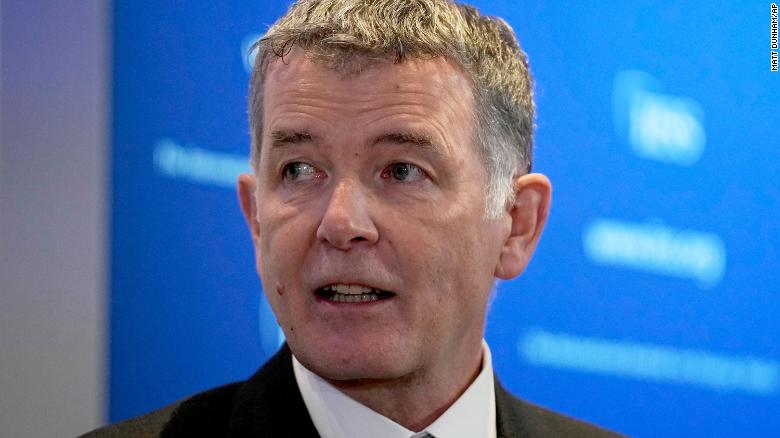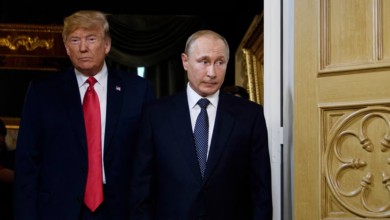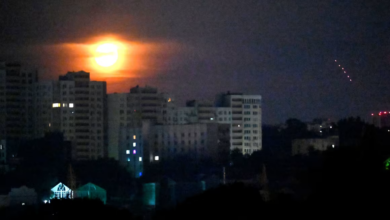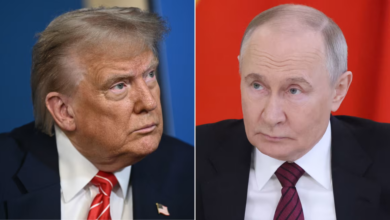
(CNN)The head of Britain’s Secret Intelligence Service said Thursday he doesn’t believe Iran’s Supreme Leader Ayatollah Ali Khamenei wants to reach a nuclear deal as hope fades that an agreement can be reached.
“I don’t think the Supreme Leader of Iran wants to cut a deal,” Richard Moore, the head of MI6, told CNN’s Jim Sciutto during an interview at the Aspen Security Forum, adding that he is “skeptical” of the Supreme Leader’s motives. “I think the deal absolutely is on the table and the European powers and the and the administration here are very, very clear on that and I don’t think that the Chinese and Russians on this issue would block it. But I don’t think the Iranians want it.”
Hopes for a return to the 2015 Joint Comprehensive Plan of Action appear to be fading as President Joe Biden pushes for an agreement amid pressure from Middle East allies to contain Iran. Biden said last week that diplomacy is the best route to keep Iran from obtaining a nuclear weapon and that US will not allow the country to achieve one. He also acknowledged that the US is “not going to wait forever” for a response from Iranian leadership on a deal.
On Friday, a senior US official suggested there’s still a chance the deal can be salvaged.
Undersecretary of State for Political Affairs Victoria Nuland suggested that Tehran is still interested in reaching an agreement, noting that “they haven’t thrown over the table yet” and “they haven’t walked away when they could have done that over these many months where the deal has been ready and sitting there.”
Nuland said it is up to Iran — and ultimately, Khamenei — to agree to the deal that has been on the table.
“It would get their oil back on the market. It would get them some relief from some of the sanctions that have come on. But for so far, they haven’t choose chosen to go in that route,” she told Sciutto at the Aspen Security Forum on Friday.
Nuland said that if Khamenei “doesn’t take the deal, we’re going have to increase the pressure, of course.” She did not go into specifics of what that pressure would entail.
Talks between US and Iranian officials in Doha, Qatar, brokered by the European Union last month regarding the deal ended without progress. After the talks, Nasser Kanani, spokesperson for the Iranian Foreign Ministry tweeted Iran presented “its operational ideas and suggestions”, adding that Mora and Iran’s negotiator Ali Bagheri Kani “will remain in touch regarding the continuation of talks and the next stage.”
Robert Malley, US Special Envoy for Iran, on Tuesday echoed Biden’s sentiments and said the likelihood of reviving the 2015 Joint Comprehensive Plan of Action “diminishes by the day.” He also said there is no deadline being set in which Tehran must come back into compliance with the nuclear agreement but that the window is “closing quite rapidly,” and “at some point, I think it it’ll become obvious to everyone that the deal is no longer available.”
“If Iran wants to come back into the deal, which they say they want to do, there is a very easy way to do it which is to agree to the terms that, not the US, but the European Union in it’s capacity as coordinator have enlisted to us, have enlisted to the Iranians,” Malley told CNN’s Sara Sidner on “Amanpour,” adding that it came up with what they considered a “fair proposal.” “We’re prepared to agree on that basis, we’re waiting for Iran to say the same.”
In 2018, the US withdrew from the nuclear deal under then-President Donald Trump, who called it “defective at its core” and Iran has increasingly rejected restrictions on its nuclear program imposed by the deal.
CNN’s Kylie Atwood, Claire Calzonetti and Emmet Lyons contributed to this report.




